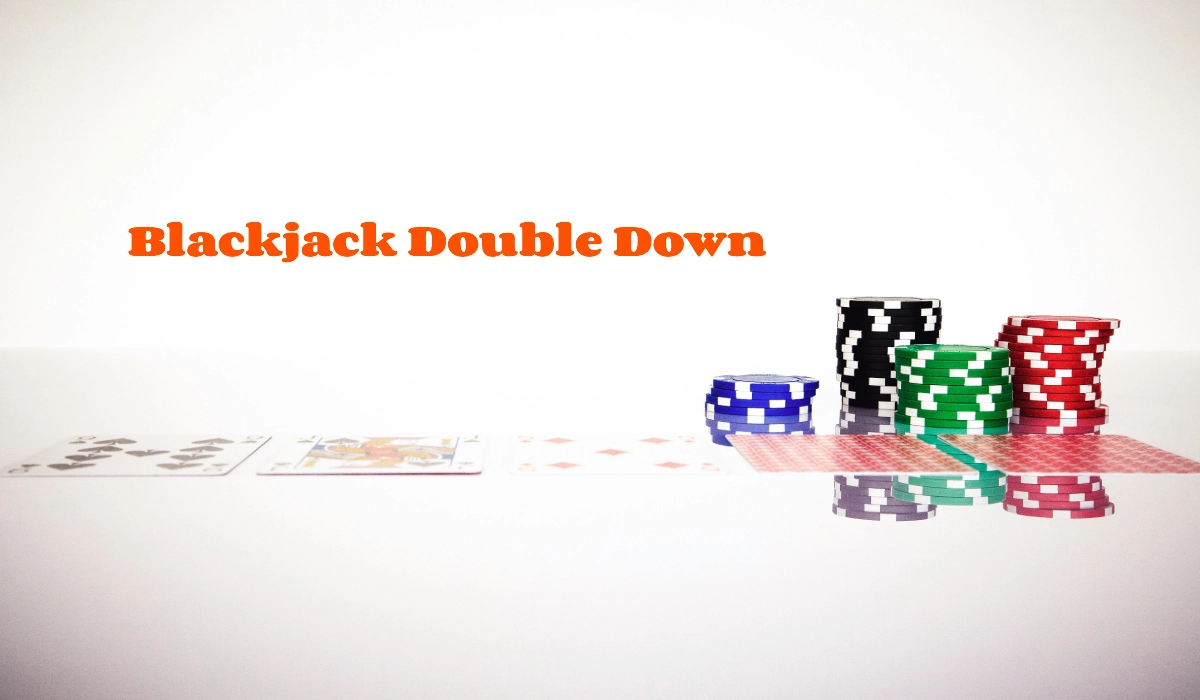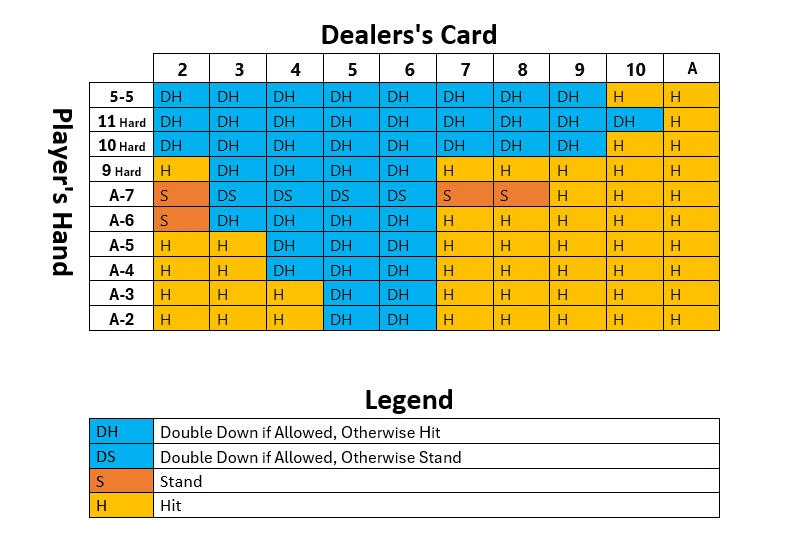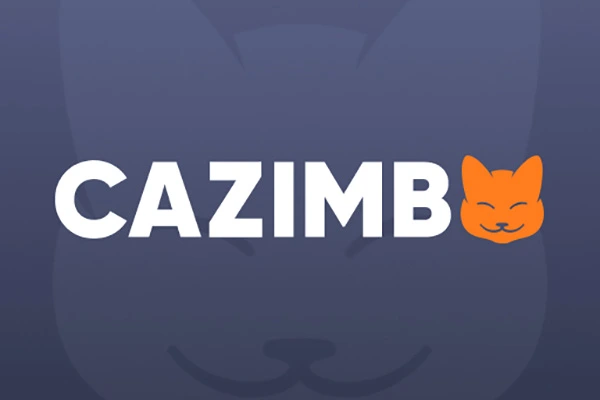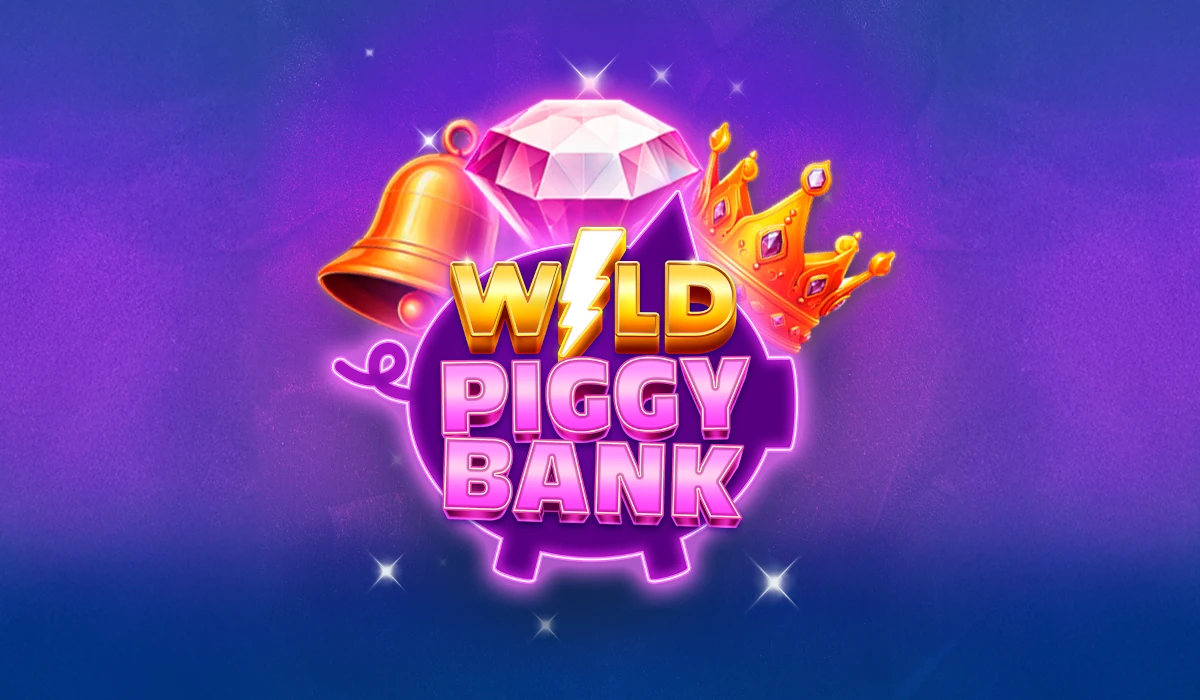
What does it mean to "double down"? Definition & Usage
🗝️ Key Takeaways
- The term double down originates in the game of blackjack. In this gamble, players increase the stakes and double down on a high-risk strategy in order to achieve larger payoffs.
- Since then, “double down” has become a fixture of common language, shorthand for when folks double their efforts, resolve, or focus in the face of a challenge.
- In blackjack, you can deliberately double down when the odds are stacked in your favor. It's no good wasting it on a weak opener – so play it like you would if you were going all in.
- Figuratively, “double down” is a favorite catchphrase used by politicians, corporate executives, and other people with ambitious plans to convey determination and focus.
- Doubling down can be a risky move, but it has the potential to achieve tremendous success. It has its dangers, especially if you overextend or apply it inappropriately.
- To double down, understand the context and what’s at stake. Second, trust in your mission and stay laser-focused.
To double down is to increase your efforts in support of an action or target policy. The conventional approach is usually focused on avoiding the worst outcomes. The phrase originated in the game of blackjack. Players can choose to double their initial stake after viewing their initial two cards, indicating trust in their hand.
Outside the casino, we’re really good at telling these stories about when people or companies stick their necks out. This might mean doubling down on individual objectives, recalibrating the way we get things done, or building targeted political clout. When you double down, you demonstrate fierce concentration and resolve to win.
In other words, you make success happen even with the risky gambles. Understanding the difference will allow you to identify situations in which taking a smart risk will result in high rewards. Let’s take a deeper dive into its meaning and real world applications.
🎲 Where Did "Double Down" Originate?
The phrase “double down” originated in the game of Blackjack, the signature of casino culture. In the game of Blackjack, you have the option to double your original bet after receiving your first two cards by doubling down. This change is about making a smart bet.
The player is dealt only one extra card and has to decide based on the strength of their hand compared to the dealer’s up card. This is a particularly smart move when the dealer has a bad card, such as a two through six. It increases the overall player win rate despite the fact that it’s playing at a small disadvantage.
Its origins underscore the blend of peril, assurance, and shrewd strategy that characterizes the core meaning behind the word mélange of ideas.
♠️ Blackjack Table Beginnings
At the Blackjack table, doubling down is more than a risky bet. It’s a tactical decision, one saved for when players are sure they’ll beat the odds. When you have an eleven in hand and a dealer showing a four, that’s an excellent time to double down.
In this situation, the reward certainly pays for the risk. These calculated decisions reflect the careful balance of risk-taking and logical thinking that has since influenced the phrase's broader meaning.
🃏 From Cards to Common Speech
Beyond the casino, "double down" found its way into everyday language by symbolizing a deeper commitment, especially in challenging circumstances. It started to seep into political discourse back in 2008 when Sarah Palin employed the term to describe her stick-to-it-iveness in the face of attacks.
Corporate titans including Apple’s Tim Cook and Google’s Eric Schmidt adopted this phrase pretty quickly to showcase their unyielding dedication to innovation. Their implementation of it really propelled its popularity.
⏳ Evolution Through Time
Today, “double down” has taken on a different meaning of grit and resolve. In business, politics, and personal decisions, it communicates a deep commitment to not give up. This promise remains, especially when others doubt you or when you experience hardship.
How we’ve gotten from the Blackjack table to a more catchall definition of persistence underscores just how quickly and flexibly language can evolve. It reflects the powerful ways language affects us regardless of culture.
📖 What Does "Double Down" Mean?
The term “double down” comes from the game of blackjack. In this version of the game, you double your opening bet after seeing your first two cards, but you have to agree to stand after getting one additional card. This controversial choice, although dangerous, pays off big time when done strategically.
The phrase embodies the spirit of entrepreneurialism, acting boldly with the expectation that taking strategic risks will lead to greater rewards. This idea has now spilled over past the game itself.

1. The Blackjack Definition Explained
In blackjack, to double down is a gambler’s bet. When you're dealt a hand totaling 11, doubling down gives you the perfect chance to capitalize—there's a high probability that the next card will be a 10, making your hand a winning 21.
The action calls for a strong sense of probabilities and confidence in the dealer’s face-up card being beneficial. It’s about taking smart risks not making blind leaps of faith.
2. Smart Blackjack Double Down Plays
Seasoned players wouldn’t consider doubling down in these situations. They only double down in particular circumstances, like when they have a 10 or 11 against a dealer’s low-value card.
These situations mathematically tilt the odds in the players’ favor. For example, doubling down on 11 against a dealer showing 6 often yields long-term gains, as the dealer is more likely to bust.
3. Visualizing a Blackjack Double Down
Picture this: you bet $10, receive an 11, and the dealer shows a 5. So you double down, putting in an additional $10. The very next card is a 10, giving you a total of 21. Since the dealer busts, you win $40. It’s a bold and risky strategy.
4. Everyday Figurative Meaning Unpacked
Beyond the casino, "double down" means recommitting to a decision or taking a stronger stance despite challenges. In the 1990s, it represented taking gambles. By the 2000s, it changed to mean serious devotion.
5. Real Talk: Using It Daily
In personal life, doubling down might mean committing to an exercise program or doubling down on a new startup. One common use, for example, is by tech CEOs to deny any retreat from their industry in the face of skepticism in the market.
6. Cultural Interpretation Differences
Though common in American English, the expression can have a much more negative meaning in other parts of the world. In the context of global business, for instance, it would likely focus on the connotations of persistence or resilience, not risk-taking.
7. How Context Shapes Meaning
Like many words, the meaning of double down is highly context dependent. Politically, it can refer to doubling down on an issue or increasing concentration on a policy agenda.
Barack Obama even featured it in his 2012 State of the Union address. He stressed the importance of education funding in determining the future.
🧑💼 Who Uses This Bold Phrase?
The phrase Bingo was the right answer, and they pressed their luck double down might be the single best phrase to escape the gambling table. Its flexibility has made it an attractive metaphorical image for branching out or doubling down in very different areas.
🏛️ Politicians Taking a Stand
If you’ve seen a politician commit to doing something, you might have heard them double down on using “double down” to make the point. Perhaps the most prominent example is President Barack Obama. He first popularized the phrase during his 2012 State of the Union Address to underscore his administration’s focus on clean energy projects.
It conveys a politician’s determination to not only proceed but to double down — despite resistance or doubt. This phrase is effective in public discourse largely because of simple, forceful language. Instead, it has become a buzzword-bingo staple in every speech and debate.
💼 Business Leaders Increasing Bets
In business, “double down” is a favorite all-purpose phrase for CEOs and other executives, especially in the tech sector. Yet even as recently as 2012, The Verge reported on how tech leaders exploited the myth to calm jittering stakeholders during the industry’s dark days.
It represents a rededication to a particular strategy or long-term vision, usually in response to fears about a company’s future. Tech CEOs are quick to use the phrase to dazzle audiences with the illusion of confidence, as they make the riskiest of all risks.
In fact, AOL.com even declared it a “buzzword of the week” back in 2010, a testament to its increasing prevalence in boardrooms across the country.
🎯 Individuals Pursuing Goals Fiercely
For nonprofit organizations, for-profits, dedicated activists and artists, doubling down often means great enthusiasm in reaffirming personal and professional goals. It’s about being fearless—whether taking the leap to a new career, getting ready for your first marathon, or fighting for your neighborhood.
The phrase gives people the boldness to pursue risks that move them closer to their dreams, which is a beautiful testament to grit and perseverance.
📺 Media Narratives and Influence
When used in such context, the media takes great advantage of the term’s dramatic flair, often throwing it into headlines to draw attention to high-stakes decisions or scandals. Even as it threatens to cross the line into cliché, its importance is no less powerful.
Card counters in casinos represent this idea, understanding exactly when to risk more money to maximize their profits on the streak they’ve been following.
♟️ The Strategy Behind Doubling Down
Though intimidating at first, doubling down in blackjack is a calculated tactic that balances risk and reward. To play with this strategy, double your bet after the deal of the first two cards. Keep in mind that you will only get one bonus card. The mechanics of doubling down are straightforward, but the decision should be based on more than dollar signs.
You need to consider all the cards on the table and the dealer’s upcard, so it’s a subtle strategy.
🚀 Why Commit Harder? Potential Upsides
Doubling down at those right moments provides the opportunity to make your best investments go even further. When your hand totals 11, you almost certainly have a favorable chance of drawing a 10-value card. This process itself usually makes for a winning final score of 21!
Similarly, a total of 10 against the dealer's upcard of 2 through 9 creates strong odds for landing at 19 or 20, both competitive hands. Soft hands, such as an Ace-6, provide wonderful flexibility. This is particularly the case when the dealer shows a weak upcard like a 4, 5, or 6.
These scenarios create an opportunity for you to double down on winning odds with a defensive, strategic edge.
💣 The Risks of Going All In
Ironically, even with all of doubling down’s benefits, it carries risks. When the dealer's upcard is a 10-value card or Ace, the chances of the dealer forming a strong hand increase significantly. Doubling down forces you to settle for only one additional card.
If that draw doesn’t help your hand, the choices you face are drastically shifted. As such, a dealer’s interest should be weighed very carefully before entering a binding commitment.
🧠 Mindset Shifts When Doubling Down
It takes nerve and a willingness to be guided by your best guess of the long-term math to approach doubling down. The stakes are high. It’s not only about a single hand.
It’s about doing the strategy again and again in perfect conditions to reduce your risk and increase your reward. Maintaining that discipline and resisting the impulse to double down on a bad hand is imperative.
⚖️ Comparing With Other Strategies
Compared to playing it safe, doubling down has greater upside potential, but risks and requires a keener attention to odds. Whereas splitting, which expands your hand possibilities, increases your strategic flexibility, doubling down accelerates the risk-reward pokerization.
It locks you into playing one very high-stakes card.
💡 Doubling Down: Successes and Failures
Doubling down is a long-shot, high-wire act. It can produce your greatest successes or most expensive failures, depending on how and when you use it. To grasp its power, you need to understand not just the times it comes through but the danger of it not coming through.
💰 When Doubling Down Pays Off
When focused on initiatives that are already known to work well, doubling down can lead to exponential growth. For instance, McDonald’s built its empire by focusing on perfecting its core offerings, scaling its strengths, and consistently enhancing customer experiences.
Just like savvy investors who know how to showcase their strongest assets, professionals who promote their best work often see remarkable returns. One physician, for example, has simplified, focused, and grown his medical practice by doing exactly that. In turn, his salary went up over 400%, a clear testament to the lucrative returns of doubling down on what works.
This strategy tends to have a snowball effect, winning little by little leading to big wins down the road. Winners often show a dogged, stubborn refusal to accept failure, fueled by a desire to win at all costs.
This drive demands balance, as overextending on a single pursuit may lead to burnout or neglect in other areas.
💥 Cautionary Tales: When It Backfires
Doubling down on failures wastes resources and credibility. HP’s investment in webOS was enormous, leading to a shocking $1.2 billion write-down.
At the same time, Google’s first and second forays into Android tablet devices led to a crash in market share. These examples show the peril of going forward with a lot of toiling in the trenches without transformative change.
A win-at-all-costs attitude can become a dangerous blindfold for decision-makers, making failures worse by converting them into even greater losses.
🎓 Key Lessons from Real Scenarios
Failing forward is critical. Actively learning from missteps and refining strategies based on those missteps are what make successful efforts different from expensive failures.
Doubling down is most effective when used in concert with good analysis and a willingness to adapt to new circumstances.
🎲 VistaGamble's View: The Double Down Dilemma
In poker, doubling down is a very risky gamble. It comes from blackjack, where players can double their bet after looking at their hand. In real life, the idea parallels real-life high-stakes decisions—betting more money, time, or professional standing on a decision. This approach, frankly, is risky by design.
Whether it's holding firm to values or amplifying a message, doubling down often draws a line between authenticity and adaptability. This is especially important for accountability-minded organizations such as B Corps, where their credibility rests solely on transparency. While softening a position may appear sensible, it can ultimately damage credibility and distance the communities one intends to support.
A parallel can be drawn to the Martingale strategy in gambling, where losses are met with increased bets in the hope of eventual recovery. This kind of approach almost never wins, because it underestimates the value of flexibility and hard work. Likewise, negotiators who play only the hard-bargain, disappear in-a-cloud-of-ego-at-the-last-minute trump card often find themselves overplaying their hand.
As with smart risk-taking, successful negotiation requires a mix of fierceness and fluidity in approach. To overlook these pieces is to set up results like a gambler doubling down to recoup losses—self-defeating and counterproductive.
The double down dilemma goes even deeper than short-term results, seeping into legacy. The choices that had to be made in that rushed timeframe carry forward, creating an outsized effect on perception and eventual impact. For example, one of these counties saw its record-high turnout spike at only 33%.
This was a disappointing figure but indicative of how overconfidence in predictions can inhibit sound decision-making. Doubling down is not only a belief-based leap of faith - it needs foresight.
🔒 Conclusion
Doubling down isn’t merely a demonstration of gall. It’s about belief, bias against empiricism, and often, stupidity born of hubris, greed and fortune. Whether at a blackjack table or in life’s tough decisions, it pushes you to go all in when it matters most. Success stories illustrate how it can bring about breakthroughs, but the well-publicized failures teach us the lesson to carefully balance risk and opportunity. Recognizing the right moment to double down and the right moment to walk away though — that’s what truly matters.
This strategy works best with a crystal clear goal and deep commitment. It’s not doing stupid things on purpose, it’s making smart bets on why. When used thoughtfully and wisely, it can be a catalyst for progress and transformation.
Connect the dots between your own decisions and the impact on your users. Are you looking to double down, too? Perhaps, it’s the beginning of a brave new world.
Frequently Asked Questions❓
What does "double down" mean?
To “double down” is to make an additional or stronger commitment, often in the face of difficulty or opposition. It comes from the gambling world, where gamblers double down on their bet when sure they have a winning hand.
Where did "double down" originate?
The term originates from the game of blackjack, a popular casino card game. Players “double down” when they double their original bet in return for one additional card only.
Is "double down" only used in gambling?
No, it’s actually already pretty common and non-technical. People use it to describe sticking firmly to a decision, stance, or strategy in various contexts, from business to personal life.
Why do people "double down"?
People double down for a variety of reasons—to project confidence, determination, resolve. Sometimes it’s a double down, to break through adversity or reinforce their advantage.
Is doubling down always successful?
Unfortunately, not in an easy way. Taking a smart, strategic approach can help us achieve huge victories. A bad or dangerous decision can set communities back for generations.
Who commonly uses the phrase "double down"?
It’s trendy in business, sports, politics, and even casual conversations. Leaders, entrepreneurs, and decision-makers frequently invoke it to illustrate the value of making bold moves.
Should I always double down in life?
Sure, it’s what the pandemic forced them to do. Measure the downside and upside potential before doubling down. It double downs best when you know you’re making the right call and have your strategy dialed.





























